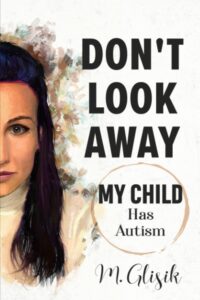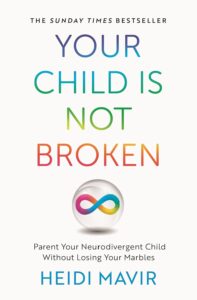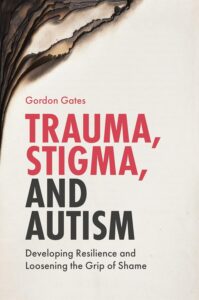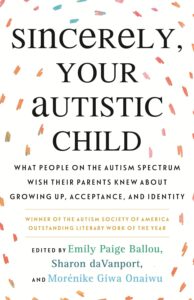As parents, accepting your child’s autism diagnosis is challenging enough. Yet, when you have friends and family who reject your child’s autism diagnosis, it makes an already stressful situation much worse. Your family needs a lot of support and when you have extended family and friends who do not accept or even work against your child’s diagnosis, it can make things very difficult for you and your child.
Our experience of family rejection of autism
I know this from personal experience. Our son J was diagnosed with Asperger’s Syndrome (no longer its own diagnosis but part of the autism spectrum disorder) at age 4. It was a surprise to us because I was originally having him tested for ADHD. (That diagnosis came two years later once he was in kindergarten.) I didn’t really know anything about autism at the time, so I had a big learning curve when he was diagnosed. I leaned heavily on his doctors for guidance and threw myself into deep research to help him.
We had a pair of relatives who refused to accept his autism. In fact, one of them actually said to me, “I don’t see anything wrong with him, and I don’t believe it.” I explained to him that J didn’t have “anything wrong with him” but that he did have a different operating system so that we needed to change our approach with him to help him live better. They refused. They wouldn’t follow any of his routines, refused to follow our food preferences for him (based on guidance from his doctor), and wouldn’t honor any of our instructions for him. It was a big problem because we saw these individuals a lot.
We tried many of the suggestions that I list below, but they refused to change. For this and many other reasons, we had to walk away from them. Although it was a hard situation to go through, it was the right decision for our family and especially to protect our son J. I wish things could have been different, but you cannot change others when they have no desire to make those changes.
Thankfully, none of our other family outright rejected J’s autism. We did – and still do – deal with those who don’t understand it and made us feel like we just weren’t parenting well enough. Even though we certainly aren’t perfect parents, we can honestly say we’ve done our best and have helped J through a great number of tough situations in his life. We have approached J’s challenges with what is best for him in mind. The discipline that the previous generation tended to use did not work with J, and it always failed when we gave in and tried it. I finally stopped trying to listen to well-intentioned but wrong advice from others and went with what I knew was the better approach for him. That was always much more successful.
Why some family and friends may reject a child’s autism diagnosis

So why do some family and friends reject a child’s autism diagnosis? I did some research on this and what I’ve found is that really the potential reasons behind the rejection have much more to do with the person who isn’t accepting the diagnosis than it has to do with the child.
For example, some family members could be afraid that they too may have autism. Autism is thought to be mostly hereditary, so if you have a family member who sees some of the same traits in themselves as they see in your child, then they may worry that they too have autism. They may be much older and cannot bear the thought of having a late diagnosis. I don’t think this was our situation, however, these relatives were in J’s two family lines where a couple of his cousins also were diagnosed with Asperger’s Syndrome.
In many cases, family or friends don’t understand autism because they lack knowledge about it. I had some family or friends who looked at some information I sent them and learned about it to better understand J. Others just refused to learn anything about it. It felt like they didn’t want to accept it, so if they didn’t learn more about it, then they didn’t have to change anything they did with J.
Another reason is thinking parents are using autism as an excuse for their child’s difficult behavior. Because they refuse to learn more about autism, they don’t understand the challenges it brings to the child and their family. They just judge the parents as being bad parents and unable to control their child.
An additional reason is they don’t want your child to be “labeled” in society. They say things like, “they don’t look autistic.” This can be well intentioned, but it will be much harder for your child to navigate through life if you and they are not truthful about who they are. My son J would not be who he is without autism. He is very open with people about it, and he accepts it as part of who he is. When someone doesn’t accept his autism, he views them as not accepting him.
Ways to handle the rejection and protect your child

What can you do as a parent to deal with this rejection? Here are some suggestions:
1. Provide education about autism
I think better understanding autism goes a long way in helping people to accept those who are autistic and fosters knowledge about how they approach the world. If you have family and friends who are open to learning, send articles or book recommendations that you’ve found helpful in your journey. You can also send them the link to my resources page, and they can read about autism and ADHD from any of those credible sources. If they prefer to listen to other parents and advocates discuss autism, have them check out these podcasts.
2. Talk to other parents of autistic children
Talking to other parents of autistic children may give you ideas of how to deal with these situations based on their learning from similar situations. You may learn something from them, but also you will have someone to share with who understands and can lament with you.
3. Be patient and know it may take time
People tend to be set in their ways so know that it may take time for a relative or friend to come around and accept your child’s diagnosis.
4. Discuss your child’s challenges in ways that don’t mention autism
Everyone has struggles, and your child is no exception. You can discuss their challenges without mentioning the relation to autism. Your relative or friend may better understand them that way.
5. Decide how much interaction you want with the family member or friend
In the end, it’s up to you to decide how much you want to interact with this person. It may be someone who you value so much that you are willing to completely let it go and hope that things change over time or accept they won’t. You may determine it’s best to limit your family’s time with the person or even walk away entirely if things turn toxic. You have to do what is best for you, your child and your family overall. That is what is most important.
Do you have experience with family or friends who reject your child’s autism diagnosis? If so, leave a comment below so that we can share and encourage each other on this journey.
Additional resources
Want to learn more about this topic? Check out these additional resources.
Don’t Look Away: My Child Has Autism (affiliate link)

Your Child is Not Broken: Parent Your Neurodivergent Child Without Losing Your Marbles (affiliate link)

Trauma, Stigma, and Autism (affiliate link)

Sincerely, Your Autistic Child: What People on the Autism Spectrum Wish Their Parents Knew About Growing Up, Acceptance, and Identity (affiliate link)









